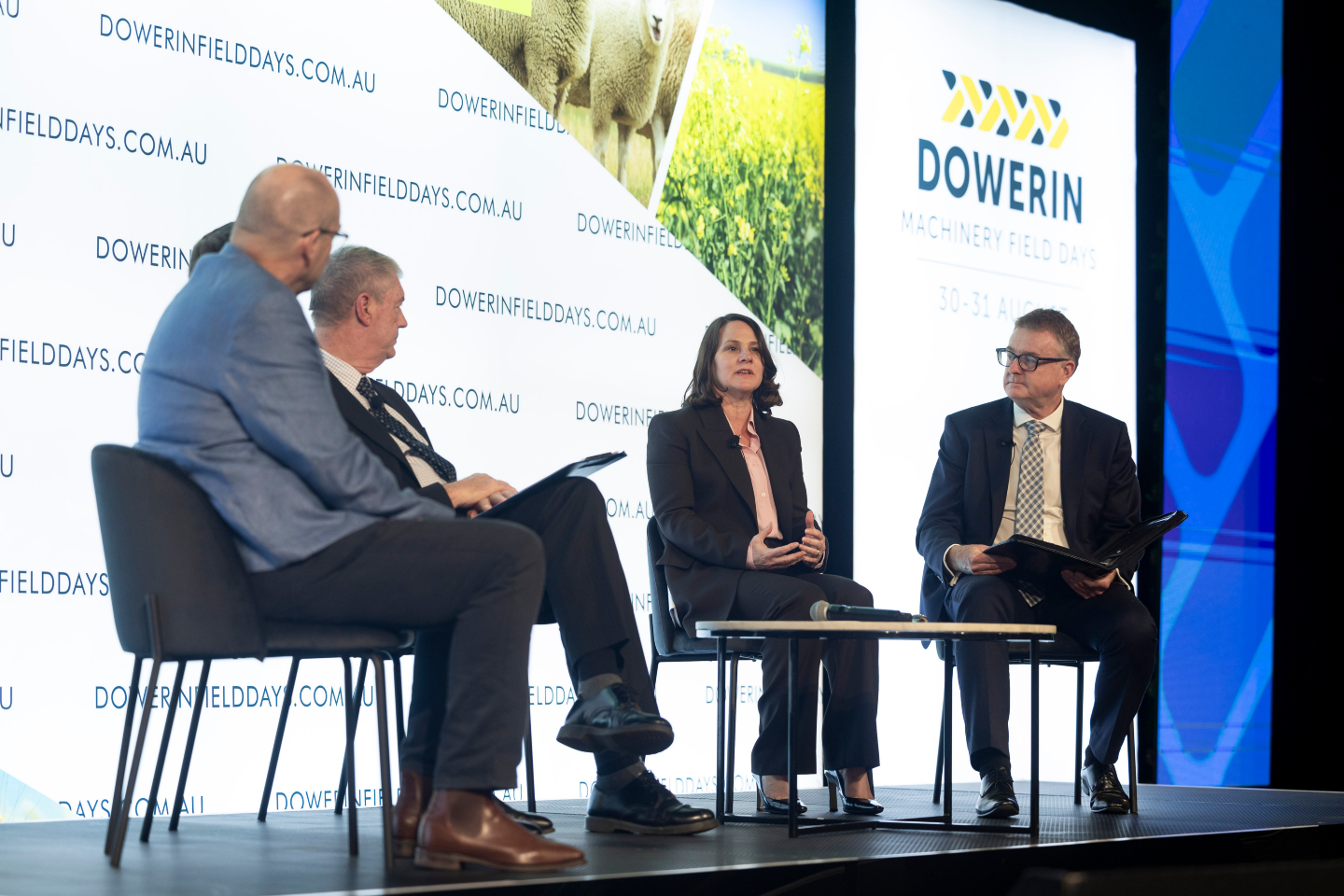Chamber of Minerals and Energy of WA boss Rebecca Tomkinson has drawn synergies between the mining and agriculture sectors as both industries adopt new technologies.


Chamber of Minerals and Energy of WA boss Rebecca Tomkinson has drawn synergies between the mining and agriculture sectors as both industries adopt new technologies to bolster growth.
Speaking at the Bringing Dowerin Downtown event in Perth ahead of the annual field day event, Ms Tomkinson told the audience of the comparative advantage between the mining and agriculture industries in the Wheatbelt.
She highlighted the mining industry’s role in the Wheatbelt’s economy, alongside the driving force of agriculture off the back of consecutive record harvests ahead of an expected lull.
“In the Wheatbelt region about 23 per cent of that regional growth and domestic product that comes out is to do with agriculture and 18 per cent is to do with mining activity,” Ms Tomkinson said.
“There’s a real intertwinedness between the two industries and the communities at large.
“For us in the industry, it’s about looking at how we can continue to grow that community contribution to really look at what we can be doing in industry to demonstrate that competitiveness.”
The region plays hosts to numerous mines, namely Newmont’s Boddington gold and copper mine, Ramelius Resources’ Edna May gold mine in Westonia and the Marvel Loch gold mine owned by Barto Gold Mining and managed by Minjar Gold.
Ms Tomkinson said miners were diversifying their prospective operations in the region.
“The Wheatbelt has traditionally been an iron ore and gold miner in that space but now they are looking at copper and looking at nickel particularly, such as the work Chalice Mining is undertaking,” she said.
“There’s a lot of very exciting emerging industries that are occurring as the economy diversifies for the region.”
Ms Tomkinson said mining companies needed to continue to invest in the liveability of the regions.
“From all of our organisations there is an absolute commitment to first and foremost want to be a part of the local community, and certainly the organisations through the Wheatbelt and those in the South West, are really committed to the long term development of the communities around them,” she said.
“The ability for companies to be able to provide that investment to ensure that community infrastructure is really strong is a really important part of who we are and what we are about.”
Also speaking at today’s event, nbn Local general manager Chris Cusack said improving connectivity was vital to the agricultural industry's growth but also retaining workers in the region.
“If you look at the agriculture sector there is a strategy to grow the industry to a $100 billion industry and research that nbn undertook several years ago indicated that digital connectivity could potentially contribute in excess $15 billion to that growth,” he said.
“Communication and connectivity are critical to the success of that.”
Automation in both industries was deliberated by both panellists, with Ms Tomkinson attributing the adoption of autonomous technology to farmers.
“The mining industry talks a lot about the technology that is utilised and remote operations that it facilities but actually farmers have been using GPS systems on tractors and on farming equipment for probably 20 years, which is long before the automation took place in many of our mining applications here in WA,” she said.
“I think again it really demonstrates the capabilities of the industries together, and the strength of that collaboration piece.
“I also love the competitive tension that’s occurring between our prospective, really important parts of the economy that build the WA community and how essential and clever West Australians are at being able to adapt technologies to ensure we are able to deliver the best possible product.
“I think we’re only just starting to see the possibilities that technology will provide for our regions.”
Wheatbelt Natural Resource Management chief executive Karl O'Callaghan also spoke to the audience about his organisations role in assisting landowners adapt and adopt technologies to meet climate change goals.
St John Ambulance chief emergency officer Brendon Brodie-Hall discussed the nuances in delivering the vital service while balancing paid and volunteer staff.
Ahead of the panel discussion, Federal Minister for Agriculture Murray Watt spoke on the looming live export ban, and the "decline" of the industry "long-before" the 2022 election.
He said he recognised the policy has "caused concern", and that sheep farmers were now dealing with lower prices caused by oversupply.
But Mr Watts insisted live sheep export had been on the decline while WA's sheepmeat export industry had surged by 200 per cent in the past 20 years.
Deputy Premier Rita Saffioti also took the stage to commend the annual Dowerin Machinery Field Days, set to attract thousands of industry stakeholders and regional community members to the town across August 30 and 31.














